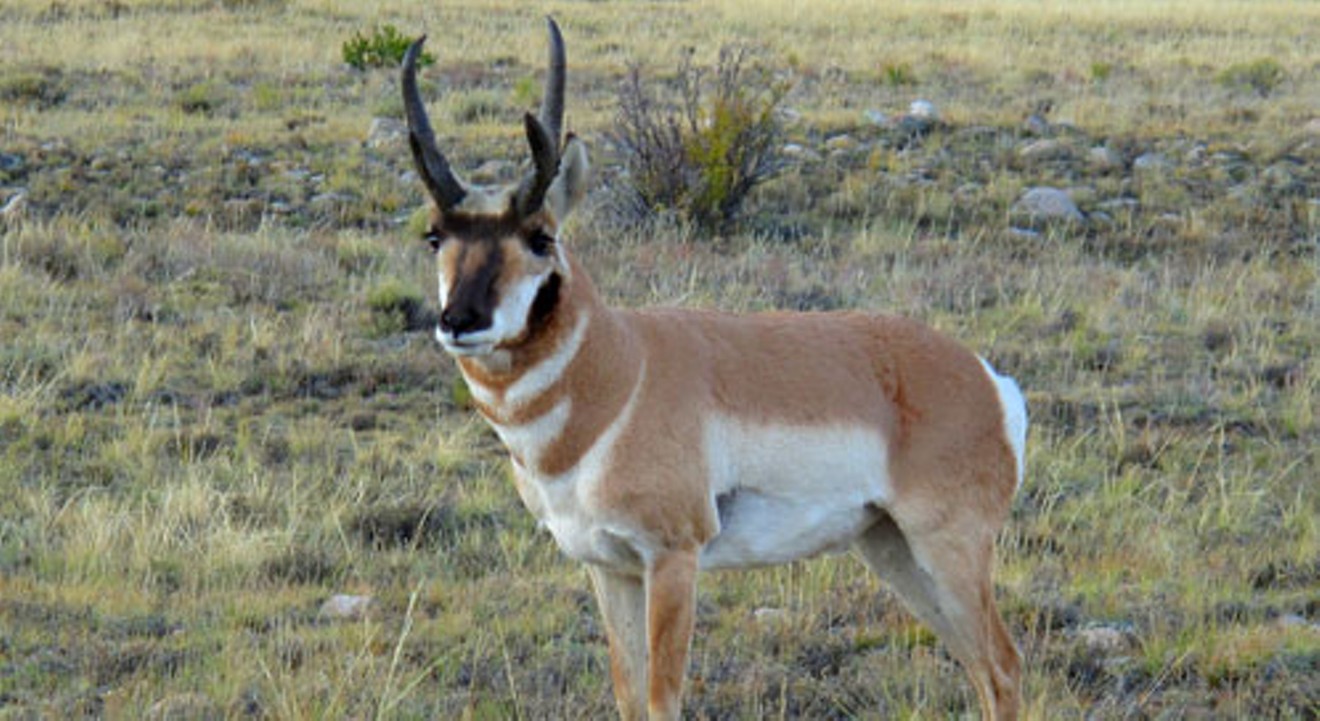Don't be fooled by the resolution's name: The actual goal has very little to do with conservation.
Arizona is home to over two-dozen endangered birds, mammals, reptiles and fish. But if the governors of Western states have their way, federal protections designed to help endangered wildlife across the U.S. would be curtailed or left up to states.
The Western Governors’ Association is eyeing major changes to the Endangered Species Act. On Wednesday, the association of 19 Western states and three U.S. territories released Policy Resolution 2017-11: Species Conservation and the Endangered Species Act.
The resolution applauds the 1973 Endangered Species Act (ESA) for preventing the loss of threatened and endangered species. But it also argues that species listings “can impact Western states’ abilities to promote economic development, accommodate population growth, and maintain and expand infrastructure such as roads, water projects, and transmission lines.”
“In these circumstances, the economic costs of ESA compliance can fall disproportionately on Western states and local communities,” the resolution continues.
The answer? Well, according to the resolution, states should be “full partners” in administering the Nixon-era ESA. Beyond federal consultation, the association also is in favor of amending the ESA to avoid “overly expansive” designations of critical habitat for endangered species.
The resolution also includes the bizarre proposal that Congress "dis-incentivize litigation that strains federal resources.” (Although the association doesn't specify how this would be achieved).
Brett Hartl, government affairs director at the Tucson-based Center for Biological Diversity, told Phoenix New Times that the association’s complaints about burdensome federal wildlife management are simply not based in reality.
“Nothing is stopping states from managing wildlife in sustainable ways,” he said. “It’s only when they’ve catastrophically failed that you list species under the endangered species act.”
Of the resolution’s recommendation for greater federal consultation, Hartl said, “The states want to be able to veto actions they don’t like based on economic and political grounds. The ESA is successful because it says we should make our decisions based on science only.”
Not all governors of Western states were on board – California Gov. Jerry Brown sent a letter to Governor Matthew Mead of Wyoming in which he declined to support the resolution. The association does not release individual votes on resolutions, communications director Joe Rassenfoss says, so it’s hard to say where individual governors stand.
How did Arizona Governor Doug Ducey vote? We don't know. A request for comment to Ducey's office was not immediately returned, but we'll update this article with his position on the resolution.
The resolution is likely to find plenty of fans in the Republican-dominated Congress, as members seek to turn over environmental management from the federal agencies to the states under the Trump administration.
Arizona has dozens of mammals, plants, birds and fish that the ESA protects as endangered or threatened, according to the U.S. Fish and Wildlife Service. But in Hartl's view, under the governors' plan, threats to species like the masked bobwhite quail and the Sonoran pronghorn would get worse, not better.
“The reality is, though, Arizona wouldn’t do a good job if they had a lot more power,” he said. “More species would just go extinct.”
[
{
"name": "Air - MediumRectangle - Inline Content - Mobile Display Size",
"component": "18478561",
"insertPoint": "2",
"requiredCountToDisplay": "2"
},{
"name": "Editor Picks",
"component": "16759093",
"insertPoint": "4",
"requiredCountToDisplay": "1"
},{
"name": "Inline Links",
"component": "17980324",
"insertPoint": "8th",
"startingPoint": 8,
"requiredCountToDisplay": "7",
"maxInsertions": 25
},{
"name": "Air - MediumRectangle - Combo - Inline Content",
"component": "16759092",
"insertPoint": "8th",
"startingPoint": 8,
"requiredCountToDisplay": "7",
"maxInsertions": 25
},{
"name": "Inline Links",
"component": "17980324",
"insertPoint": "8th",
"startingPoint": 12,
"requiredCountToDisplay": "11",
"maxInsertions": 24
},{
"name": "Air - Leaderboard Tower - Combo - Inline Content",
"component": "16759094",
"insertPoint": "8th",
"startingPoint": 12,
"requiredCountToDisplay": "11",
"maxInsertions": 24
}
]












